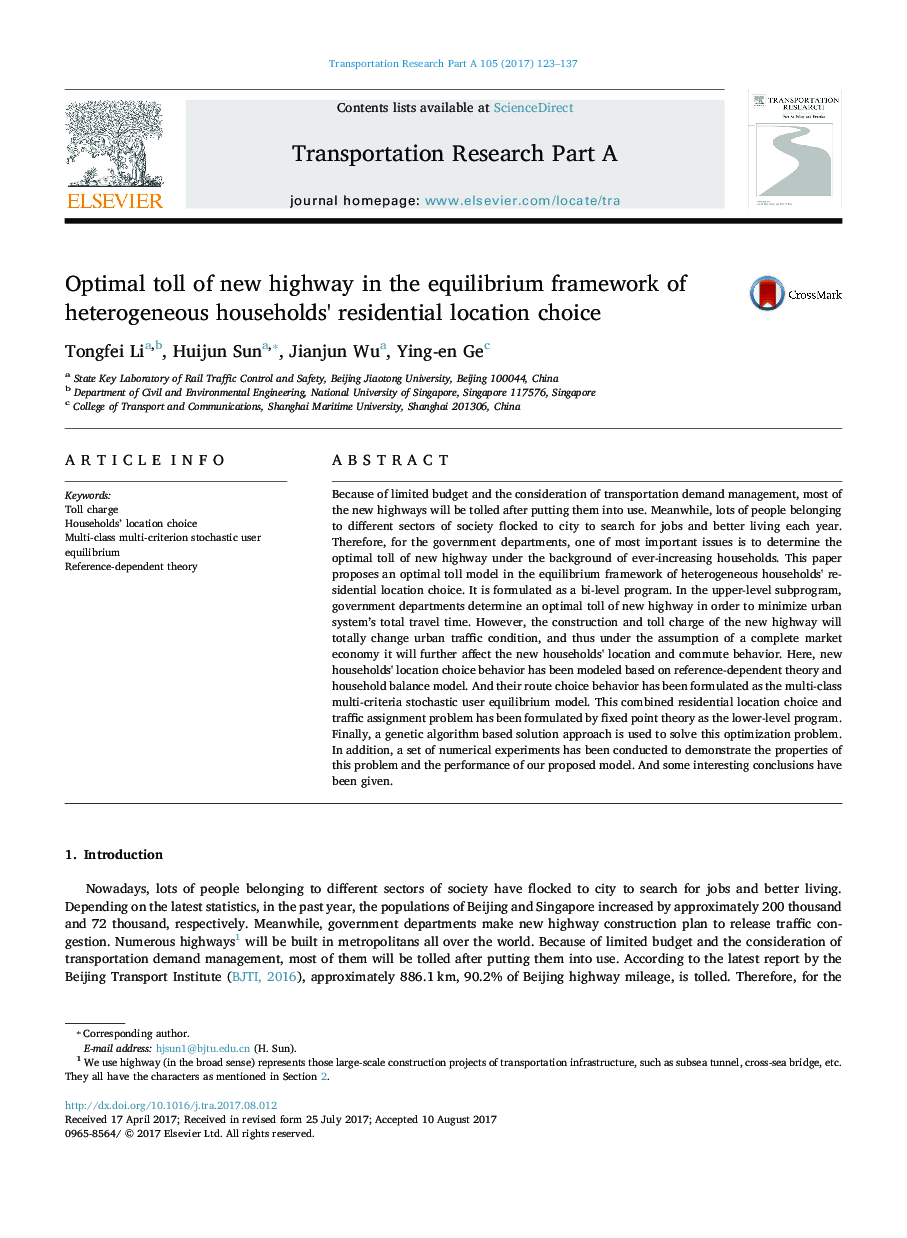| Article ID | Journal | Published Year | Pages | File Type |
|---|---|---|---|---|
| 4928853 | Transportation Research Part A: Policy and Practice | 2017 | 15 Pages |
Abstract
Because of limited budget and the consideration of transportation demand management, most of the new highways will be tolled after putting them into use. Meanwhile, lots of people belonging to different sectors of society flocked to city to search for jobs and better living each year. Therefore, for the government departments, one of most important issues is to determine the optimal toll of new highway under the background of ever-increasing households. This paper proposes an optimal toll model in the equilibrium framework of heterogeneous households' residential location choice. It is formulated as a bi-level program. In the upper-level subprogram, government departments determine an optimal toll of new highway in order to minimize urban system's total travel time. However, the construction and toll charge of the new highway will totally change urban traffic condition, and thus under the assumption of a complete market economy it will further affect the new households' location and commute behavior. Here, new households' location choice behavior has been modeled based on reference-dependent theory and household balance model. And their route choice behavior has been formulated as the multi-class multi-criteria stochastic user equilibrium model. This combined residential location choice and traffic assignment problem has been formulated by fixed point theory as the lower-level program. Finally, a genetic algorithm based solution approach is used to solve this optimization problem. In addition, a set of numerical experiments has been conducted to demonstrate the properties of this problem and the performance of our proposed model. And some interesting conclusions have been given.
Related Topics
Physical Sciences and Engineering
Engineering
Civil and Structural Engineering
Authors
Tongfei Li, Huijun Sun, Jianjun Wu, Ying-en Ge,
